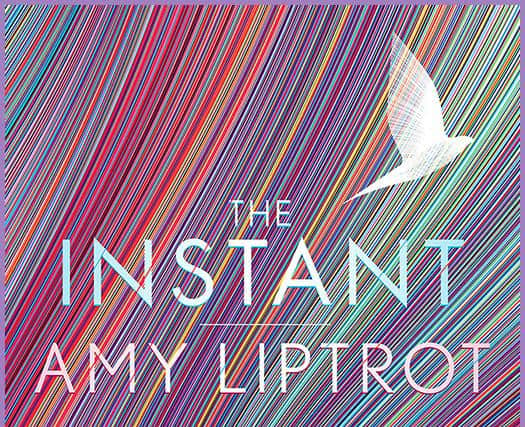Book review: The Instant, by Amy Liptrot


I have a certain penchant for books which can be classified as “unclassifiable”. Amy Liptrot’s debut was like that, a melange of nature writing, grief, addiction memoir and close observation of both the world and herself. Her second book is similar and dissimilar in ways that are interesting. Again, there is meditation on addiction, again there is rumination on how the natural world might make us transcend ourselves. But there is more going on in this book. It might be seen as a pendant next to The Outrun but I feel The Instant is trying to be more experimental and daring, and it succeeds in this. There is a diaristic quality to the book, but it is structured and reinforced by more elegant manoeuvres.
Liptrot was very frank in her first book. In The Instant she is almost excessively honest. Having returned to Orkney to re-find herself, in this book she adventures to Berlin in search, as she says of “new experiences, inspiration and love”. One of the most tender moments in The Outrun was where she momentarily felt that desire was still possible. This instalment somewhat ups the ante. The Berlin she finds is both formal and hedonistic, reserved and uninhibited. It also has raccoons and goshawks which she finds curious. There is almost a shamanic element to her relationship to the urban wild.
Advertisement
Hide AdThough some of what she writes might seem ephemeral, it is structured through 13 moons. This grounds the book effectively, particularly as she says at the outset that “the moon… is my boyfriend”. The moon lingers over the book, as distant and intimate at the same time. Although she might be considered – ghastly phrase – a “nature writer”, much of the most interesting material here is about technology and politics. Liptrot scrolls through dating sites, checks her phone obsessively, uses an app to know about the moon (I find a window works quite well) and engages with her friends virtually rather than in person.


The book has other flourishes. On the first page we are told, in reference to Berlin, “B said that people moving here often feel like they’ve dropped several years, that they can extend their youth”. But numerous points refer to B, and B is sometimes male and sometimes female. There is something very kindly about anonymity for others, and the device might seem a little clever-clever, but it does work. The best part of the book, to my mind, was an account of Berlin roundabouts. It was almost like Iain Sinclair’s psychogeography, especially in the descriptions of dirt and decay, and I would happily have read a whole book about these unnatural nature reserves. Lines, in a kind of poetry, intersperse the text – whether they are Liptrot’s own or not I am unsure – and they can verge on the sententious. For example, “Kiss me in an industrial estate / Kiss me in the city centre pedestrianized zone. / Kiss me in the green belt. Kiss me on the international date line”. These lines are always in italics, as if they were gleaned from a handwritten notebook.
The politics of the book are intriguing. Taking jobs for minimum wage where “the repetitive work is soothing” introduces a segment of society: “everyone who works here is, like me, from elsewhere and living in the city to pursue creative ambitions. The others are musicians, painters, photographers and artists. We represent a subculture in Berlin of twenty- and thirty-somethings who have chosen not to have regular work, who have chosen uncertainty and are privileged to do so. We are a highly educated bunch of factory workers, international wannabes thinking of other things”. The way in which Liptrot relates this to the cunning quality of animals, learning how the city can be an environment, is done with elegance.
Then there is the dizzying fling. Although there are elements I recognise from, for example, Anais Nin I found the erotic moments awfully boring. A walk in the woods has an “unquestioning” tryst, where “we f***, with me leaning forward against a tree, one boot off and one leg out of my trousers, my socked foot pointing into space”. Women writing about desire, even about libidinous desires, is not off limits: but – do I really need to know? I’d rather read more about the feral raccoons and how they ended up in Berlin.
Yet this book has joys, and Liptrot has a graceful prose style. “I like knowing that the city is not completely human. Nature is not separate and distant. Wild beasts live among us, unreliant, adaptive, among the train tracks and cemeteries and industrial estates; among domestic dogs and cats, feral pigeons and fireworks”.
Perhaps the oddest thing about this book is the epilogue. The reader has been given a searingly frank account of heartbreak, and how the digital realm exacerbates it, and then we are told about a boyfriend and child. It’s a dangled story, and no doubt will be the next book.
The Instant, by Amy Liptrot, Canongate, £14.99
A message from the Editor
Advertisement
Hide AdThank you for reading this article. We're more reliant on your support than ever as the shift in consumer habits brought about by coronavirus impacts our advertisers.
If you haven't already, please consider supporting our trusted, fact-checked journalism by taking out a digital subscription at https://www.scotsman.com/subscriptions